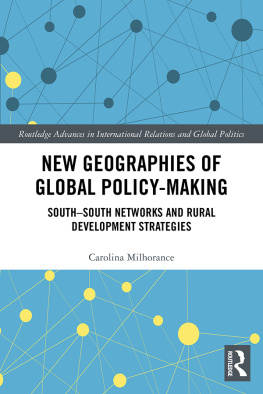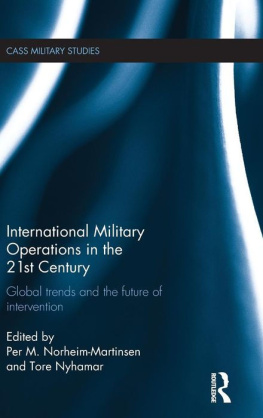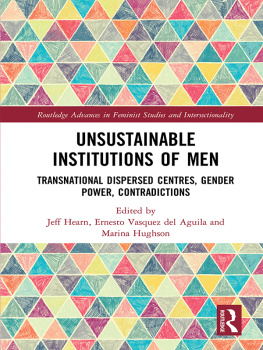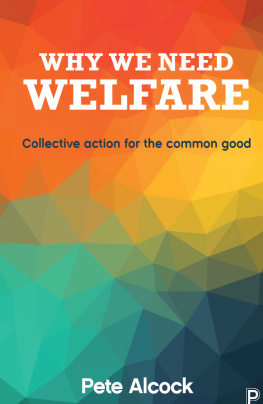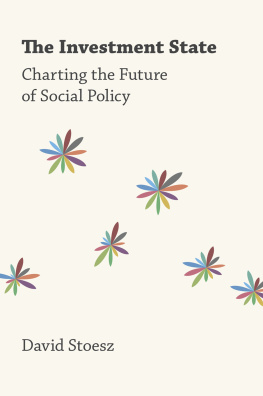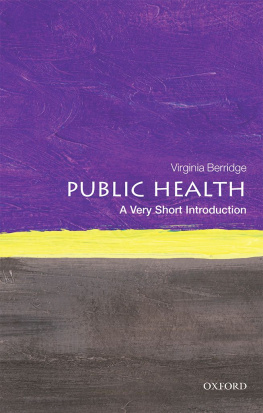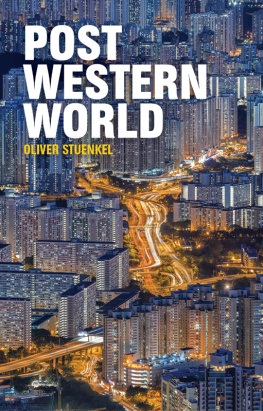Internationalist perspectives seem to be losing ground just when the world needs them most. This can be changed, if people put pressure on leaders to choose bold responses based on solidarity. Jonathan Glennie's short but powerful book makes a convincing case for Global Public Investment based on statutory contributions (rather than patronising aid from rich to poor countries) as a necessary element to deal with the challenges we face.
Jayati Ghosh
Professor of Economics,
Jawaharlal Nehru University, New Delhi
Most people think of foreign aid in terms of humanitarian assistance. Jonathan Glennie has bolder ambitions. He suggests using aid for global public investments that make everyone better off. With COVID-19 underlining the inequalities and unsustainability of the current structure of development finance, big new ideas are needed. That is what this book provides.
Homi Kharas
Senior Fellow, Brookings Institution
At a time when reforming international co-operation has become a matter of urgency and all perspectives should be heard, Jonathan Glennie's thought-provoking book sets the stage for a paradigm shift, with its proposal for global public investment.
Mario Pezzini
Director, OECD Development Centre
Jonathan Glennie brilliantly recommends the transformation of foreign aid into Global Public Investment and, in alignment with the Sustainable Development Goals, he advocates for a universal and sustainable approach, to renew our understanding of the international system. A reading must!
Patti Londoo
Former Colombian foreign minister
It is hard not to feel overwhelmed by the relentless onslaught of current global events. The planet that sustains us is barely coping with extreme weather events, bush fires, and the decimation of wildlife. Conflicts and other human-made disasters are driving mass movements of populations to seek safety, refuge and better livelihoods and gains in poverty reduction are in serious threat of being reversed. The Covid-19 pandemic could not have hit at a worse time. Nonetheless, the amalgamation of these events could be the catalyst for the change we need to address these challenges and in The Future of Aid: Global Public Investment, Jonathan Glennie, persuasively, provides important insights and critical analyses to deliberate on how we might do this Based on scholarly reviews and dialogue, The Future of Aid: Global Public Investment is a demonstration of a rare skill in an academic author; the ability to combine fairly dense ideas with engaging prose to make the text accessible to a broad audience. It is timely and required reading for those tasked to engage in international public finance.
Pascale Allotey
Director, United Nations University
International Institute for Global Health
This publication is timely and necessary. It not only provides very practical ideas on how countries could come together to fight immediate global challenges such as the Covid-19 pandemic, but also offers a framework on how to sustainably finance the SDGs. It is a first of its kind and should shape global policy and development co-operation in years to come. It is a must read for any policy maker and practitioner!
Vitalice Meja
Executive Director, Reality of Aid Africa
Jonathan Glennie revives the conversation on development cooperation at the right time. The world can no longer be seen as a patchwork of countries, but as a global community working towards common goals. From the objectives to the practices of development cooperation, this book presents the key areas of debate and the types of creative thinking needed in the future. The book is an invitation to the development community to re-imagine itself by questioning some strongly held beliefs about international cooperation. The world has changed from how it was seen at the beginning of this century. This is a must-read for anyone interested in a new international response to global problems.
Andrea Ordez
Director, Southern Voice
By boldly thinking outside the box and challenging the conventional wisdom regarding aid, this timely book offers an entirely new approach to how we should confront the global challenges of the 21st century. Calling for a sweeping change in the objectives, concepts and practice of development finance, it will garner support from scholars and practitioners alike.
Andr de Mello e Souza
Senior Researcher, Institute for Applied
Economic Research, Rio de Janeiro
Global social justice is the ultimate global public good. We need Global Public Investment to make global social justice happen. This brilliant book explains how. You should read it.
Gorik Ooms
Honorary Professor of Global Health Law &
Governance, London School of Hygiene &
Tropical Medicine
Abandoning the hierarchical and demeaning concept of aid for the dignified and responsible concept of Global Public Investment, Glennie shifts focus from national priorities to the global good. GPI is an exciting new concept in which public funds are a proactive and long-term investment in the common endeavour of development.
Nora Lester Murad
Founder, Dalia Association, Ramallah
Covid-19 threatens to plunge millions of people back into poverty. We need unprecedented ambition to respond to this extraordinary crisis, and to other challenges such as climate change. This book sets out one part of the answer.
Andy Sumner
Professor of International Development,
King's College, London
Today's world is very different from that in which international aid was created. New international powers have emerged, the range of official and private providers has enlarged, and new and more complex issues threaten our future progress and wellbeing. In accordance, we are obliged to go beyond aid and transit to a more ambitious and inclusive system of public collective action at the international level. Jonathan Glennie draws up some of the required components of this alternative approach. In an illuminating book, he offers to us a fresh view on this topic, with defiant proposals and illuminating insights.
Jos Antonio Alonso
Professor of Applied Economics,
Complutense University, Madrid
For those interested in international development, this book could hardly be more timely. The traditional model of rich north, poor south, and the aid paradigm which was part of it, suffered a major body-blow with the global financial crash of 2008/9. Coronavirus is a more recent and powerful incentive to think about the world and the relationship between its constituent parts in a different way. This thoughtful and provocative volume does not pretend to have all the answers. It is a beginning, an invaluable contribution to the thinking required to set us on the path to finding the concessional resources needed to address the global challenges - enshrined within the Sustainable Development Goals - which we must address urgently, and together.
Myles Wickstead
Visiting Professor, King's College,
London, and former UK Ambassador to Ethiopia
The Future of Aid: Global Public Investment usefully exposes gaps between old paradigms and new realities in international development cooperation. While arguing to retire the concept of foreign aid, Glennie maintains that international public finance is a unique resource for greater equity and sustainability, amidst increasingly diverse financing sources and complex risks like climate change and Covid-19. His proposals for adapting development finance to meet the ambition of the SDGs are certain to stimulate thinking and debate.


